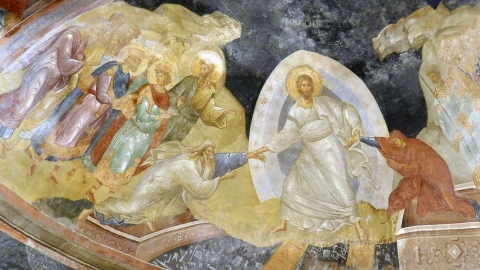Francis Amends the Vatican Penal Code

Vatican City Court of Justice
Reduced sentences, or commuted to community service, reintegration plans for convicts: Pope Francis has just changed the criminal justice sector, “because of the changing sensibilities of the times.”
The ink of the new edition of the Vatican Penal Code was barely dry when changes began appearing in its pages. As reported in a previous article, Msgr. Juan Ignacio Arrieta, project manager of the recent compilation, specified on December 10: “The Vatican Penal Code as published today is the end result of a long process of revisions over the years.”
This long review does not appear to be over, however. Indeed, by an apostolic letter in the form of a motu proprio, signed on February 8, 2021, the Sovereign Pontiff has just reformed the penal code of the smallest state in the world. Rest assured, even if the trials were to increase, the Vatican will not be affected by the scourge of prison overcrowding!—even though there are no prisons within Vatican City: the detainees are locked in an Italian prison, at the expense of the Holy See.
One of the first changes concerns sentence reductions: from now on, if an inmate expresses sincere repentance, his sentence can be reduced from 45 to 120 days, for each year already served.
In addition, the magistrates must become the judges of the imposition of sentences: “before beginning a sentence, the offender may draw up an agreement with the judge for a treatment and integration program with the specific commitment to ‘eliminate or mitigate the consequences of the crime,’ taking into account for this purpose compensation for damage, reparation and restitution.”
If the electronic bracelet is not yet in use in the Vatican, the pontifical motu proprio nevertheless gives the condemned the possibility of proposing “actions such as restoring damages or carrying out voluntary social work, as well as conduct aimed at promoting, where possible, mediation with the injured person.”
Another modification of the penal code concerns the abolition of the trial in absentia: so far, if the defendant did not appear at his trial, the trial proceeded all the same, without being able to hear the witnesses for the defense.
From now on, this is no longer possible if it is proved that the “defendant is unable to attend the hearing for ‘legitimate and serious impediment, or if due to mental infirmity he is unable to provide for his own defense,’ the hearing will be suspended or postponed.”
A final development to note concerns the second and third instances of judgment. In order to speed up the judicial procedure, in the event of an appeal and then cassation, the functions of prosecutor will be performed by a magistrate from the same office as at first instance, who will be appointed by the prosecutor of the previous instance.
This is a way to avoid starting from scratch in certain cases, while safeguarding a fair judgment, since the panel of judges having to pass judgement remains, for its part, always different at each instance.
Many changes came into force on the very day of the publication of the motu proprio by the Holy See press room, on February 16, 2021.
Related links
(Sources : Salle de presse du Saint-Siège/Vatican News – FSSPX.Actualités)
Illustration : Alamy / Abacapress





